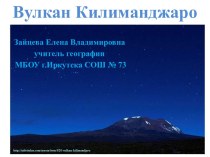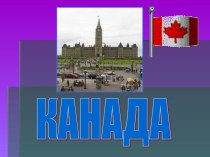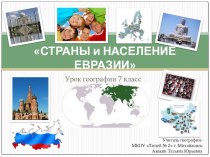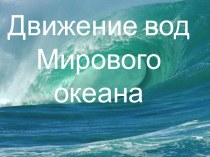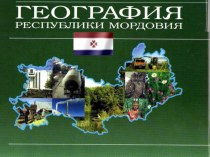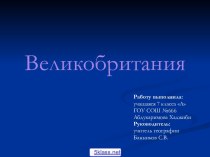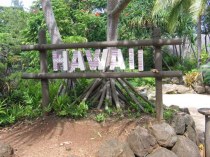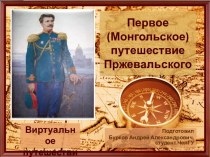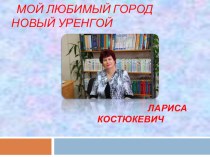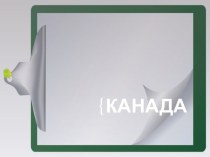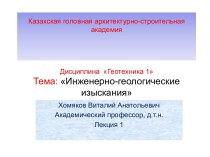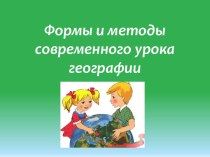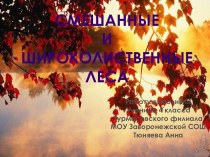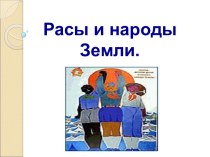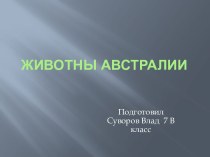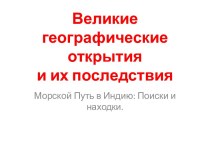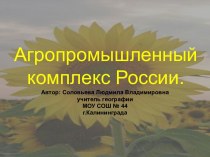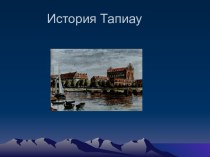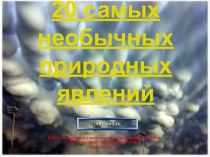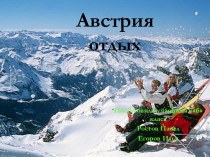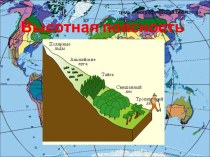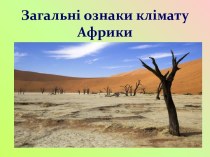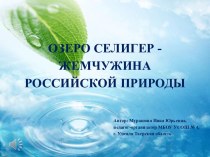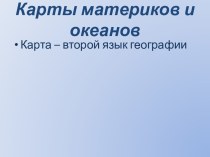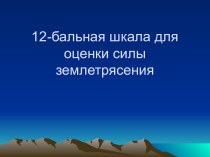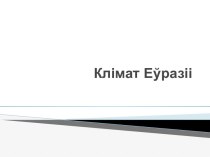- Главная
- Разное
- Бизнес и предпринимательство
- Образование
- Развлечения
- Государство
- Спорт
- Графика
- Культурология
- Еда и кулинария
- Лингвистика
- Религиоведение
- Черчение
- Физкультура
- ИЗО
- Психология
- Социология
- Английский язык
- Астрономия
- Алгебра
- Биология
- География
- Геометрия
- Детские презентации
- Информатика
- История
- Литература
- Маркетинг
- Математика
- Медицина
- Менеджмент
- Музыка
- МХК
- Немецкий язык
- ОБЖ
- Обществознание
- Окружающий мир
- Педагогика
- Русский язык
- Технология
- Физика
- Философия
- Химия
- Шаблоны, картинки для презентаций
- Экология
- Экономика
- Юриспруденция
Что такое findslide.org?
FindSlide.org - это сайт презентаций, докладов, шаблонов в формате PowerPoint.
Обратная связь
Email: Нажмите что бы посмотреть
Презентация на тему The Kingdom of Swaziland - a country in South Africa
Содержание
- 2. The Kingdom of Swaziland - a country in South Africa.
- 3. It offers a wide variety of natural
- 4. The official capital of the country -
- 5. The three-stage relief of the country
- 6. 75% of the country's labor force is
- 7. The bulk of the population is
- 8. Age categories: 0-14 years - 46%
- 9. Domestic air traffic in the country
- 10. The head of state - the
- 11. This is a King of Swazilend – Mswati III
- 12. Tourist attraction is the traditional reed dance (Umhlanga) - annual mass holiday in Swaziland.
- 13. The main religion in Swaziland -
- 14. Скачать презентацию
- 15. Похожие презентации
The Kingdom of Swaziland - a country in South Africa.
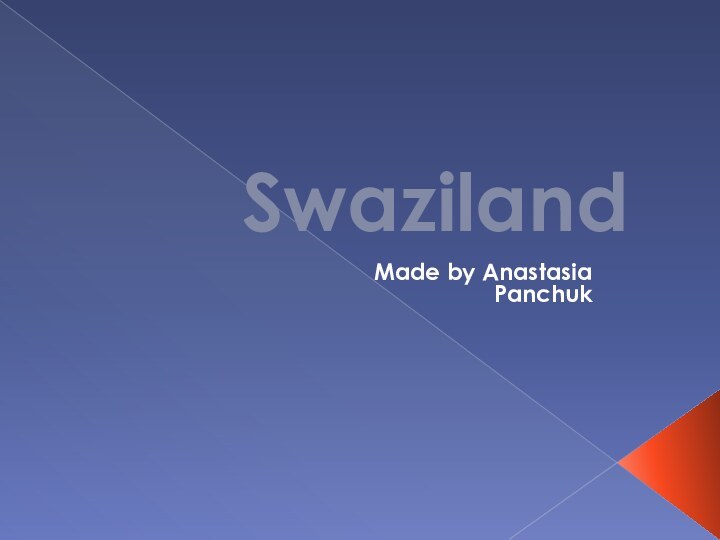
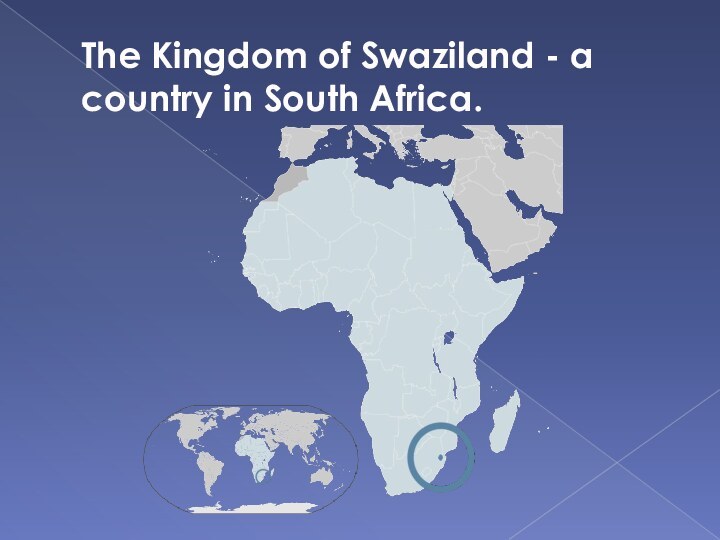
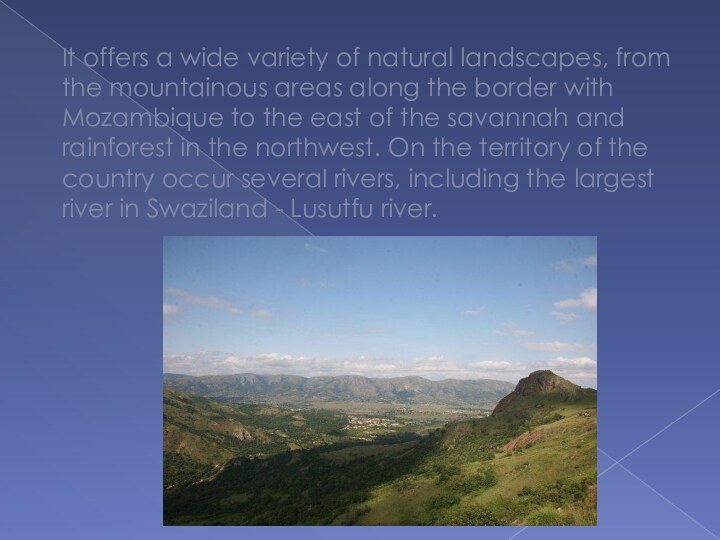
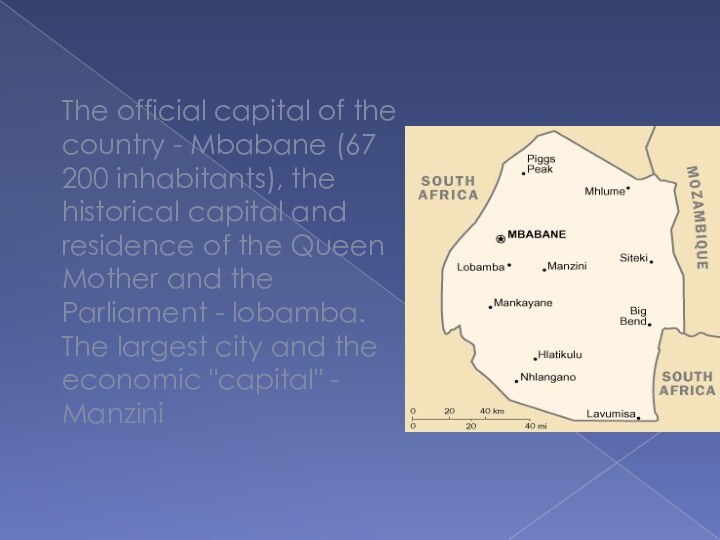
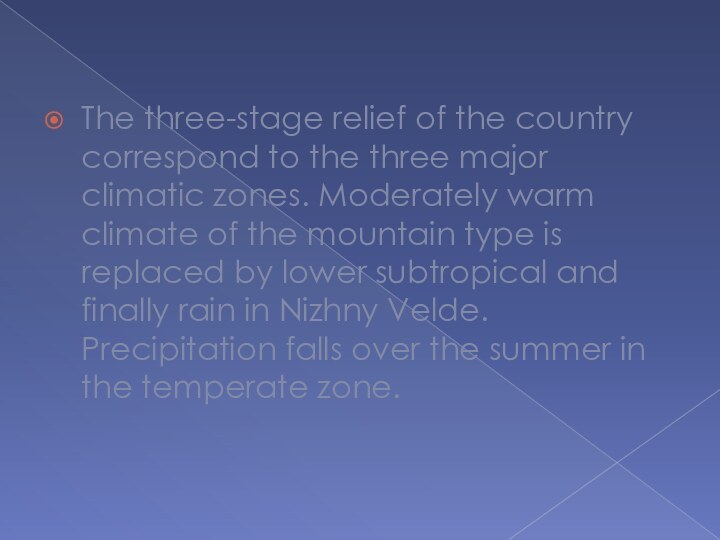
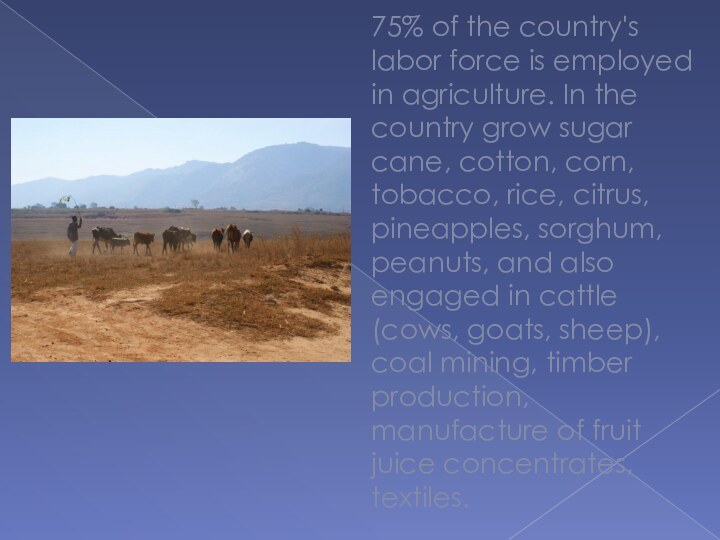
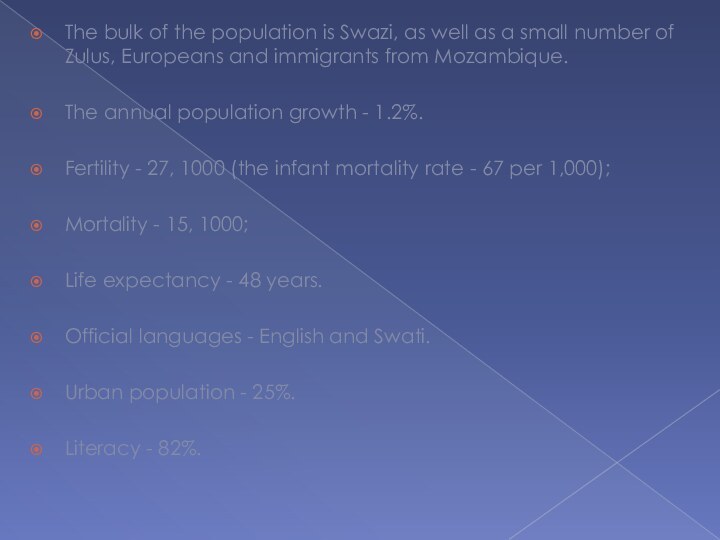


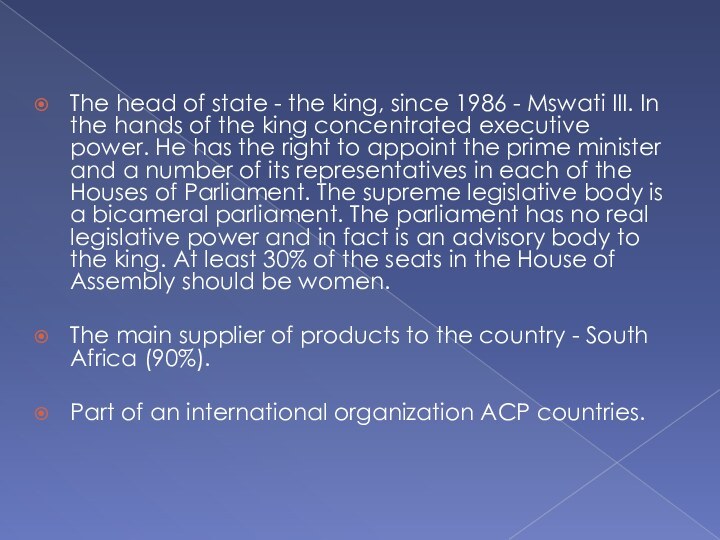
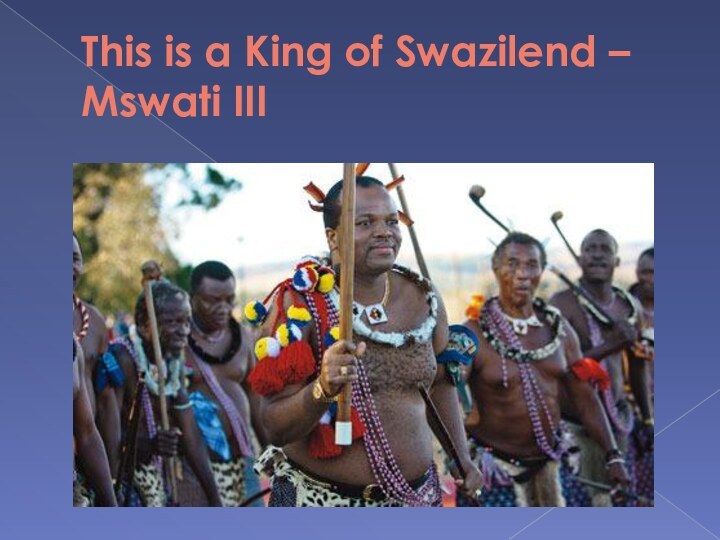
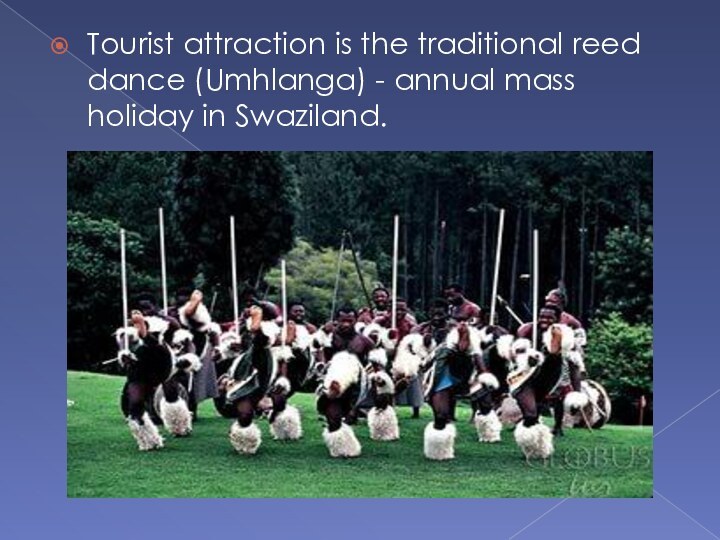

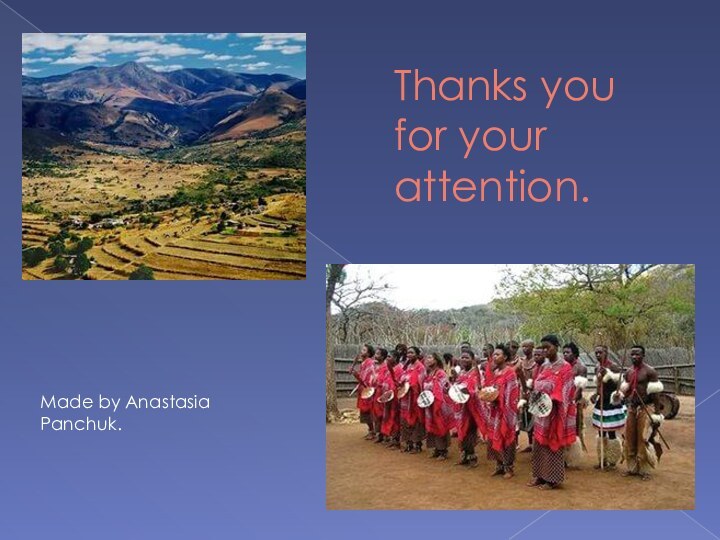
Слайд 3 It offers a wide variety of natural landscapes,
from the mountainous areas along the border with Mozambique
to the east of the savannah and rainforest in the northwest. On the territory of the country occur several rivers, including the largest river in Swaziland - Lusutfu river.Слайд 4 The official capital of the country - Mbabane
(67 200 inhabitants), the historical capital and residence of
the Queen Mother and the Parliament - lobamba. The largest city and the economic "capital" - Manzini
Слайд 5
The three-stage relief of the country correspond
to the three major climatic zones. Moderately warm climate
of the mountain type is replaced by lower subtropical and finally rain in Nizhny Velde. Precipitation falls over the summer in the temperate zone.Слайд 6 75% of the country's labor force is employed
in agriculture. In the country grow sugar cane, cotton,
corn, tobacco, rice, citrus, pineapples, sorghum, peanuts, and also engaged in cattle (cows, goats, sheep), coal mining, timber production, manufacture of fruit juice concentrates, textiles.
Слайд 7
The bulk of the population is Swazi,
as well as a small number of Zulus, Europeans
and immigrants from Mozambique.The annual population growth - 1.2%.
Fertility - 27, 1000 (the infant mortality rate - 67 per 1,000);
Mortality - 15, 1000;
Life expectancy - 48 years.
Official languages - English and Swati.
Urban population - 25%.
Literacy - 82%.
Слайд 9
Domestic air traffic in the country is
missing. There are flights on small planes for groups
of tourists. Bus service in the country is developed not very good. Large buses are different congestion and slowness of movement. Tourists are recommended to travel by mini-beads. They can get almost anywhere in the country. A ticket for this type of transport is very cheap. For 3$-4$, you can cross the entire country. Rail is used exclusively for transit and transportation of cargo and iron ore from neighboring Mozambique.The length of roads in Swaziland is about 3.8 thousand. Km.
Слайд 10
The head of state - the king,
since 1986 - Mswati III. In the hands of
the king concentrated executive power. He has the right to appoint the prime minister and a number of its representatives in each of the Houses of Parliament. The supreme legislative body is a bicameral parliament. The parliament has no real legislative power and in fact is an advisory body to the king. At least 30% of the seats in the House of Assembly should be women.The main supplier of products to the country - South Africa (90%).
Part of an international organization ACP countries.
Слайд 12
Tourist attraction is the traditional reed dance
(Umhlanga) - annual mass holiday in Swaziland.
Слайд 13
The main religion in Swaziland - Christianity
(82.7% of the population), in which various Protestant and
indigenous African churches, including African Zionist, constitute the majority, there are also a significant number of Roman Catholics.Other religions include Islam, Baha'i, Hinduism.
Swaziland is a country with the highest percentage of people infected with the human immunodeficiency virus (HIV). Every fourth adult citizen of the country is a carrier of the virus..

